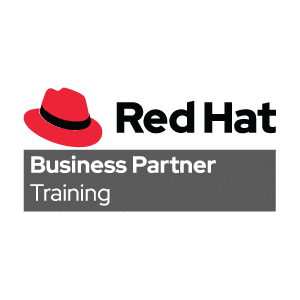Develop microservice-based applications in Java EE with Micro Profile and OpenShift Building on Red Hat Application Development I: Programming in Java EE (AD183), the introductory course for Java EE application development, Red Hat Application Development II: Implementing Microservice Architectures with exam (DO284) emphasizes learning architectural principles and implementing microservices in Java EE, primarily based on Micro Profile with WildFly Swarm and OpenShift. You will build on Java EE application development fundamentals and focus on how to develop, monitor, test, and deploy modern microservices applications. Many enterprises are looking for a way to take advantage of cloud-native architectures, but many do not know the best way to go about it. These enterprises have monolithic applications written in Java Enterprise Edition (JEE). The Red Hat Certified Enterprise Microservices Developer exam (EX283) is included in this bundle. This course is based on Red Hat® Enterprise Application Platform 7.4 and Wildfly Swarm 2018.3.3.
-
Configure, manage, and troubleshoot OpenShift clusters and containerized applications.
Red Hat OpenShift Administration II: Operating a Production Kubernetes Cluster with exam (DO281) teaches you how to configure, troubleshoot, and manage Red Hat® OpenShift® Container Platform. This hands-on, lab-based course shows you how to verify the successful installation of a cluster, manage it on a day-to-day basis, and troubleshoot the deployment of containerized applications.
This4course is based on Red Hat Enterprise Linux® 8.2 and OpenShift Container Platform 4.6. The Red Hat Certified Specialist in OpenShift Administration exam (EX280) is included.
-
A developer-focused introduction to OpenShift application building, deployment, scaling, and troubleshooting.
Red Hat® OpenShift® Container Platform is a containerized application platform that allows enterprises to accelerate and streamline application development, delivery, and deployment on-premise or in the cloud. As OpenShift and Kubernetes continue to become widely adopted, developers are increasingly required to understand how to develop, build, and deploy applications with a containerized application platform. While some developers are interested in managing the underlying infrastructure, most developers want to focus on developing applications and using OpenShift for its simple building, deployment, and scaling capabilities.
-
Identify the proper frameworks and tools to build your microservices architecture.
Developing Cloud-Native Applications with Microservices Architectures (DO092) is a series of on-demand, online videos that will teach you how to combine different frameworks and tools into a microservices architecture that fits your organizational needs.
-
Containers, Kubernetes and Red Hat OpenShift Technical Overview (DO080) is a series of on-demand, online videos that introduces you to Linux® containers and container orchestration technology using Docker, Kubernetes, and Red Hat® OpenShift Container Platform.
This course is based on Red Hat OpenShift Container Platform 4.1.
-
Learn the basics of agile integration
Red Hat Agile Integration Technical Overview (DO040) provides a technical introduction to Red Hat’s comprehensive set of integration and messaging technologies.
-
Learn the basics of Ansible automation and configuration management, and more
Ansible Essentials: Simplicity in Automation Technical Overview (DO007) is a series of on-demand, online videos that introduces you to Ansible automation and configuration management, provisioning, deploying, and managing compute infrastructure across cloud, virtual, and physical environments with Ansible.
-
Control, manage, trace, monitor, and test your microservices with Red Hat OpenShift Service Mesh
Building Resilient Microservices with Istio and Red Hat OpenShift Service Mesh (DO328) teaches students installation, service monitoring, service management, and service resilience of Red Hat OpenShift® Service Mesh.
Openshift created an enterprise-ready, multi-tenant platform that made deploying and scaling microservice applications efficient and easily repeatable. But as these architectures become larger and more complex, defining how these services interact with each other becomes increasingly difficult. Red Hat OpenShift Service Mesh comprises 3 products—Istio, Jaeger, and Kiali—that facilitate service interaction management, provide service tracing, and create a visual representation of communication pathways.
This course is based on Red Hat OpenShift® Container Platform 4.4 and Red Hat OpenShift Service Mesh 1.1.
-
A basic introduction to container management in Red Hat Enterprise Linux
Running Containers with Red Hat Technical Overview (RH065) provides a basic introduction to container management in Red Hat Enterprise Linux. Students will learn what containers are and how to use them to deploy software applications on a Red Hat Enterprise Linux server.
-
Learn how to automate the building of SAP environments using Red Hat Ansible.
Red Hat Ansible Automation for SAP Technical Overview (RH045) is a series of free on-demand, online videos that explain how to automate the deployment, configuration, creation, and migration of SAP workloads using Red Hat Ansible. Focusing on day-1 operations, Red Hat Senior Architect Ricardo García Cavero demonstrates how to install and deploy SAP HANA and SAP S/4HANA applications using Red Hat Ansible Tower, as well as how to create, migrate, and configure environments for SAP workloads.
-
Develop microservice-based applications with Quarkus and OpenShift.
Many enterprises are looking for a way to take advantage of cloud-native architectures, but many do not know the best approach. Quarkus is an exciting new technology that brings the reliability, familiarity, and maturity of Java Enterprise with a container-ready lightning fast deployment time.
This course is based on OpenShift 4.5 and Quarkus 1.7
-
Supporting the infrastructure for adoption of container technology and container-native applications, Kubernetes, and DevOps practices
The Container Adoption Boot Camp for Administrators (DO700) immerses you in intensive, hands-on management of container-native applications deployed on Red Hat’s implementation of Kubernetes, Red Hat® OpenShift® Container Platform, at enterprise scale. This course is for those seeking to make a quantum leap in their digital transformation journey. Making this shift requires the ability to support a growing number of clusters, stakeholders, applications, and users to achieve large-scale deployments. As part of enrollment, you will receive one year of Red Hat Learning Subscription Standard, which gives you unlimited access to all of our courses online, plus up to five certification exams and two retakes.
This collection of courses is based on Red Hat OpenShift Container Platform 4.5.








